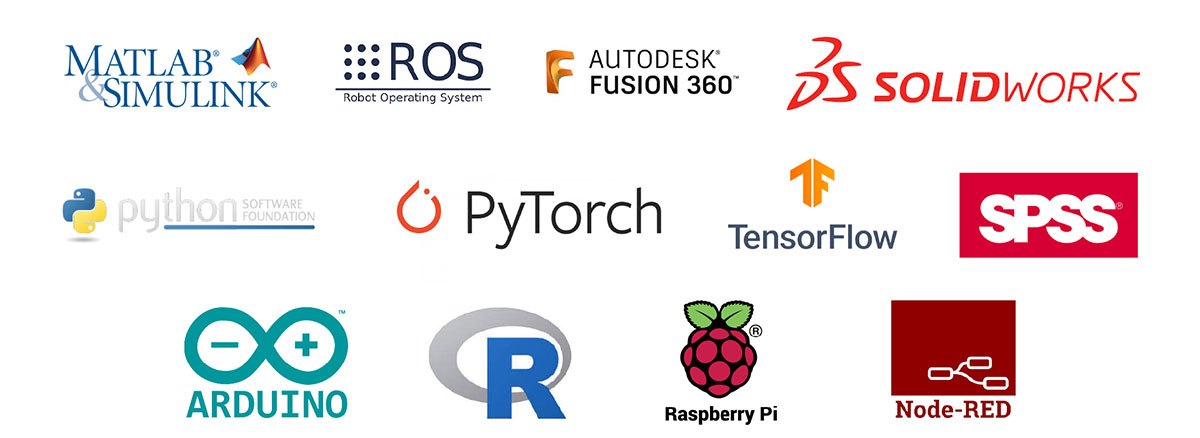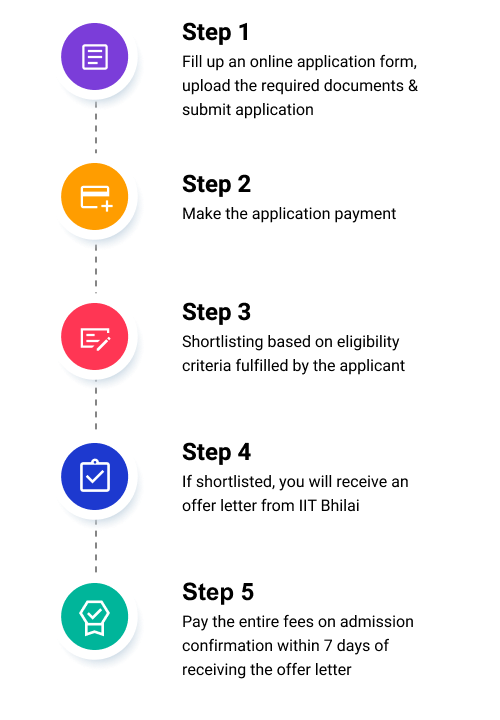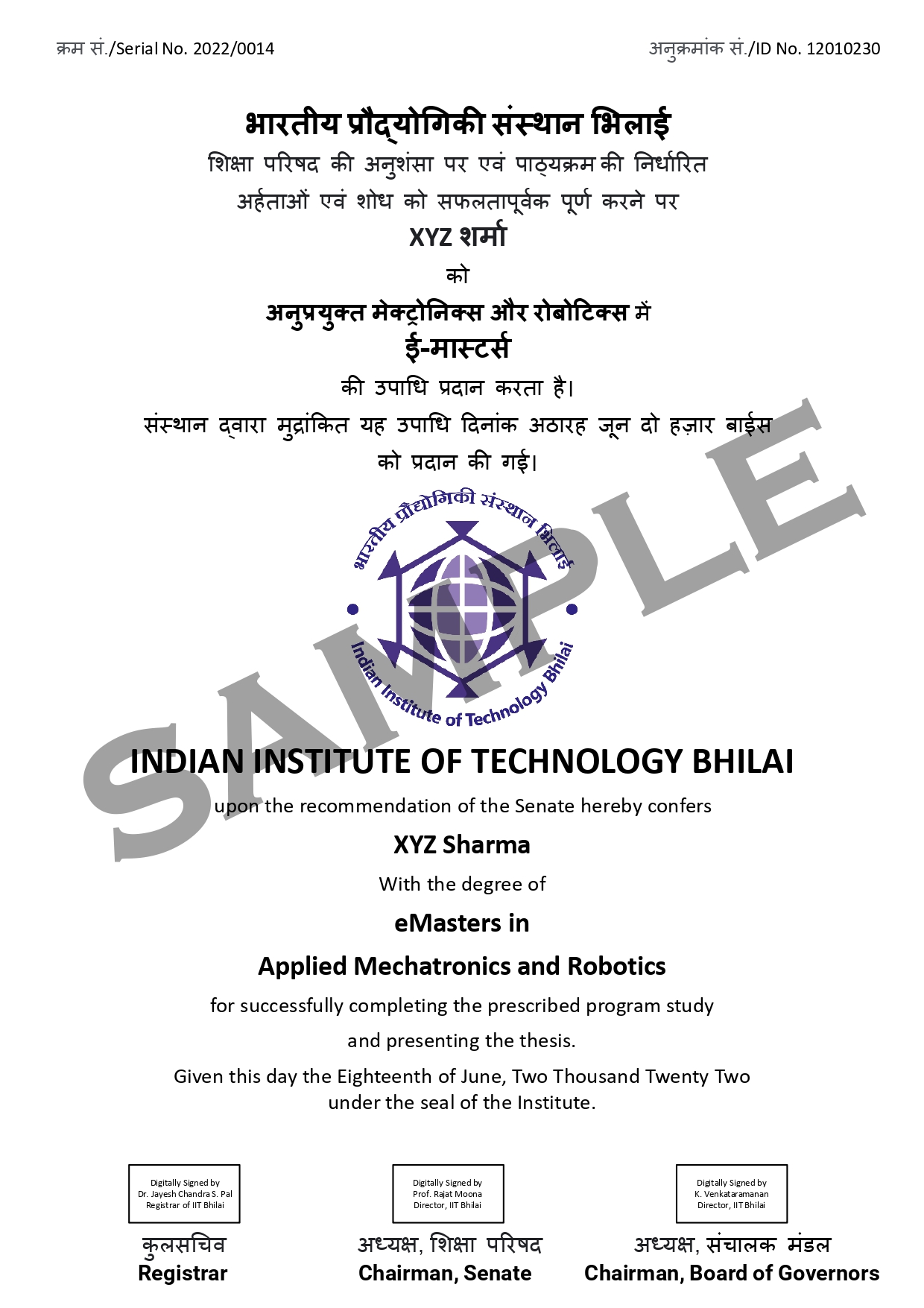Eligibility for PhD:
Executive M.Tech. degree will be
considered eligible for PhD admissions. Other MEQs will remain as per the institute norms.
Eligibility:
Minimum 2 years of relevant experience within the preceding 3 Years*.
Should have B.Tech. / B.E. / B.Sc. in relevant field (minimum 4-year program) / M.S. or
M.Sc. in relevant field (minimum 2-year program) / M.C.A. (minimum 2-year program). For
the candidates applying based on the M.Sc./M.S./M.C.A. degree, the undergraduate degree
must be in a science or engineering field.
In the qualifying degree, at least 55% marks or a
CGPA/CPI equivalent to 55% marks. In case the candidate belongs to the SC, ST, or Persons
with Disability (PwD) category, this is relaxed to 50% marks or a CGPA/CPI equivalent to
50% marks. To be eligible to apply for equivalency after the third semester, the candidate
must have scored the minimum marks in the qualifying degree as specified in the
eligibility criteria of the regular M.Tech. program of IIT Bhilai.
*to be computed as per the last day for application submission of this round.
Duration:
The nominal duration of the Executive M.Tech.
program will be 2 calendar years / 4 semesters (online).
The nominal
duration of the Executive M.Tech.
program with an equivalency to the regular M.Tech. will be a 5 semesters (3 online, 2
offline). Please contact IIT Bhilai for further details.


 Yogesh Singh
Yogesh Singh 
 Ameer Mulla
Ameer Mulla 


